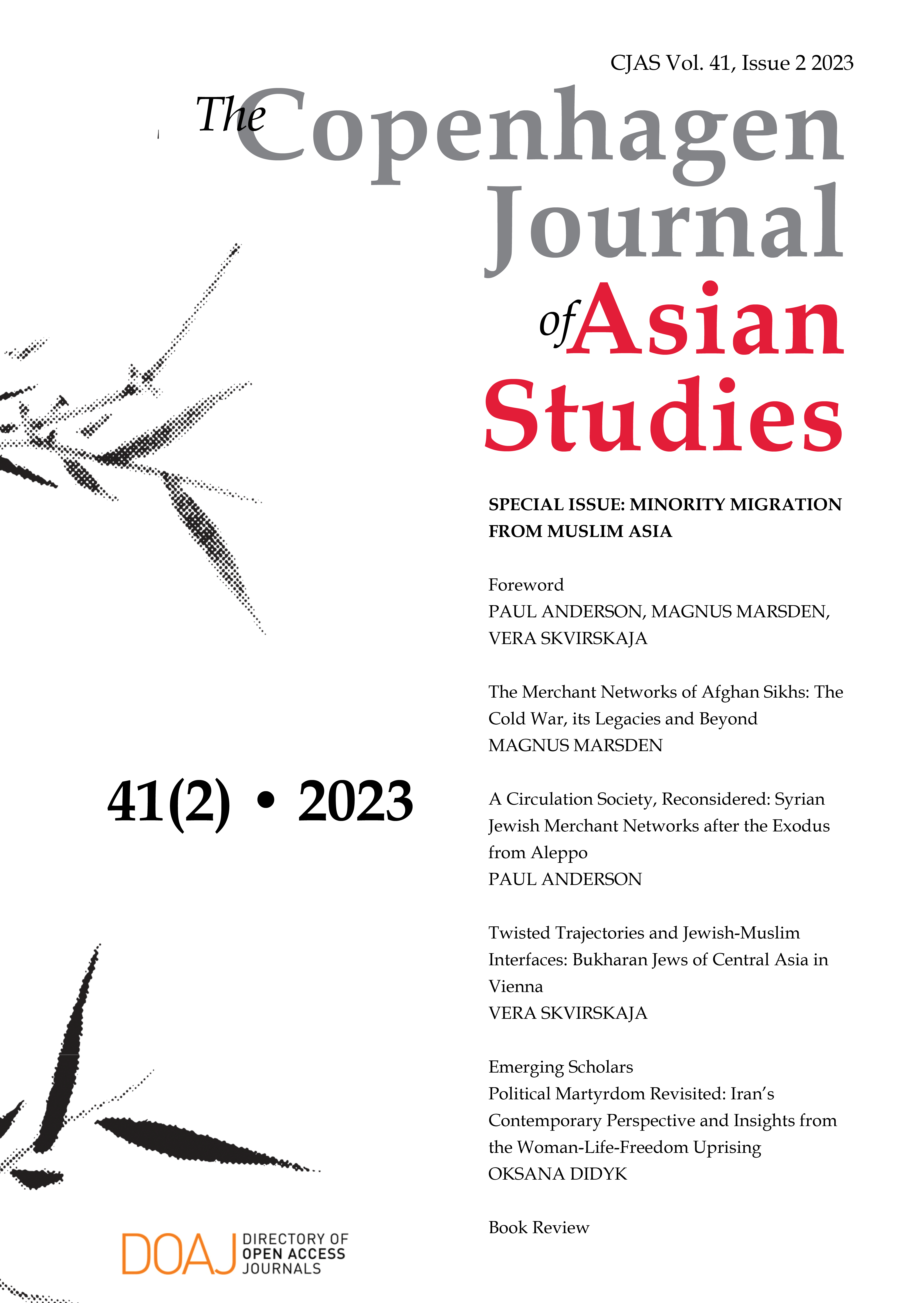Political Martyrdom Revisited: Iran’s Contemporary Perspective and Insights from the Woman-Life-Freedom Uprising
DOI:
https://doi.org/10.22439/cjas.v41i2.7109Keywords:
political martyrdom, shahadat, Iran, Islamic Revolution, Mahsa Amini protestsAbstract
Martyrdom holds significant cultural and historical importance in Iranian culture. It has deep roots in Shia Islam, the predominant religion in Iran, and frequently appears in Iranians’ collective memory. The concept of martyrdom gained significant prominence during the Iran-Iraq War (1980 - 1988) when many Iranians, including soldiers and civilians, lost their lives while defending their country. The war led to a surge in a culture surrounding martyrdom, with commemorations, ceremonies and rituals that continue today. Years after the war, new conceptions of martyrdom appeared, and the traditional ones transformed. The latest uprisings in Iran in 2022, with the slogan ‘woman-life-freedom’, have spurred a lively discussion as to how to consider martyrdom nowadays. This article examines the concept of martyrdom, offering fresh interpretations influenced by generational shifts and the rise of social activism in the 2020s, which diverge from traditional revolutionary ideologies. Drawing from survey data and qualitative interviews, the research proposes a taxonomy of martyr categories.
References
Aghaie, Kamran Scot 2004. The Martyrs of Karbala: Shi'i Symbols and Rituals in Modern Iran. Seattle and London: University of Washington.
Ayoub, Tareq 2023. 'Heroism and Being-towards-Death: On Sacrificial Martyrdom in Contemporary Shiʿism'. Religions 14 (8): 971. https://doi.org/10.3390/rel14080971. Accessed on 11 August 2023.
Bonney, Richard 2007. Jihad: From Qu'ran to Bin Laden. New York: Palgrave Macmillan.
Breckman, Warren 2019. 'Persons as "Symbols" and "Carriers": Two Modes of Imagining the Individual and Society in the Nineteenth Century'. The Tocqueville Review 40 (2): 65-74. https://doi.org/10.3138/ttr.40.2.65
Burnham, Peter, Gilland Lutz, Karin, Grant, Wyn and Layton-Henry, Zig 2008. Research Methods in Politics. 2nd ed. Basingstoke: Palgrave Macmillan. https://doi.org/10.1007/978-0-230-36556-8
Cook, David 2007. Martyrdom in Islam. Cambridge: Cambridge University Press. https://doi.org/10.1017/CBO9780511810688
Cook, David 2015. Understanding Jihad. Oakland, CA: University of California Press. https://doi.org/10.1525/9780520962491
Dorraj, Manochehr 1997. 'Symbolic and Utilitarian Political Value of a Tradition: Martyrdom in the Iranian Political Culture'. The Review of Politics 59 (3): 489-522. https://doi.org/10.1017/S0034670500027698
Durkheim, Emil 2002 [1897]. Suicide, a Study in Sociology. London: Routledge Classics.
Hoffman, Bruce and McCormick, Gordon H. 2004. 'Terrorism, Signaling, and Suicide Attack'. Studies in Conflict & Terrorism 27 (4): 243-281. https://doi.org/10.1080/10576100490466498
Koehler, Daniel 2020. 'Dying for the Cause? The Logic and Function of Ideologically Motivated Suicide, Martyrdom, and Self-sacrifice within the Contemporary Extreme Right'. Behavioral Sciences of Terrorism and Political Aggression 14 (4): 1-22. https://doi.org/10.1080/19434472.2020.1822426
Korangy, Alireza 2009. 'A Literary and Historical Background of Martyrdom in Iran'. Comparative Studies of South Asia, Africa and the Middle East 29 (3): 528-543. https://doi.org/10.1215/1089201X-2009-036
Momeni, Esha 2019. 'Red Death and Black Life: Media, Martyrdom and Shame'. Middle East Critique 28 (2): 177-195. https://doi.org/10.1080/19436149.2019.1599538
Murphy, Andrew R. 2023. 'Theorizing Political Martyrdom: Politics, Religion, Death, and Memory'. Political Theology 24 (5): 465-485. https://doi.org/10.1080/1462317X.2022.2125118
Oakley, Barbara, Knafo, Ariel, Madhavan, Guruprasad and Wilson, David Sloan (eds.) (2011). Pathological Altruism. Oxford: Oxford University Press. https://doi.org/10.1093/acprof:oso/9780199738571.001.0001
Olsthoorn, Johan 2017. 'Conceptual Analysis'. Blau, A. (ed). Methods in Analytical Political Theory. Cambridge: Cambridge University Press, pp. 153-191. https://doi.org/10.1017/9781316162576
Osiewicz, Przemyslaw 2020. Foreign Policy of the Islamic Republic of Iran: Between Ideology and Pragmatism. London: Taylor & Francis Group. https://doi.org/10.4324/9781003018285
Shariati, Ali, Taleqani, Mahmoud Alaei and Mutahhari, Morteza 2005. Jihad and Shahadat (Struggle and Martyrdom in Islam). Houston: Institute for Research and Islamic Studies.
Surdykowska, Sylwia 2012. Martyrdom and Ecstasy: Emotion Training in Iranian Culture. Newcastle upon Tyne: Cambridge Scholars Publishing.
Varzi, Roxanne 2006. Warring Souls. Durham and London: Duke University Press. https://doi.org/10.1215/9780822388036
Downloads
Published
Issue
Section
License
Copyright (c) 2024 Oksana Didyk

This work is licensed under a Creative Commons Attribution 4.0 International License.


